कोशिश गोल्ड - मुक्त
One Hundred Years Of... The Adivasi Quandary
Outlook
|October 21, 2025
RSS' Vanvasi Kalyan Ashram works in the fields of education, health and rural development. However, the cultural homogeneity of tribals as Hindus is at the core of its agenda
-
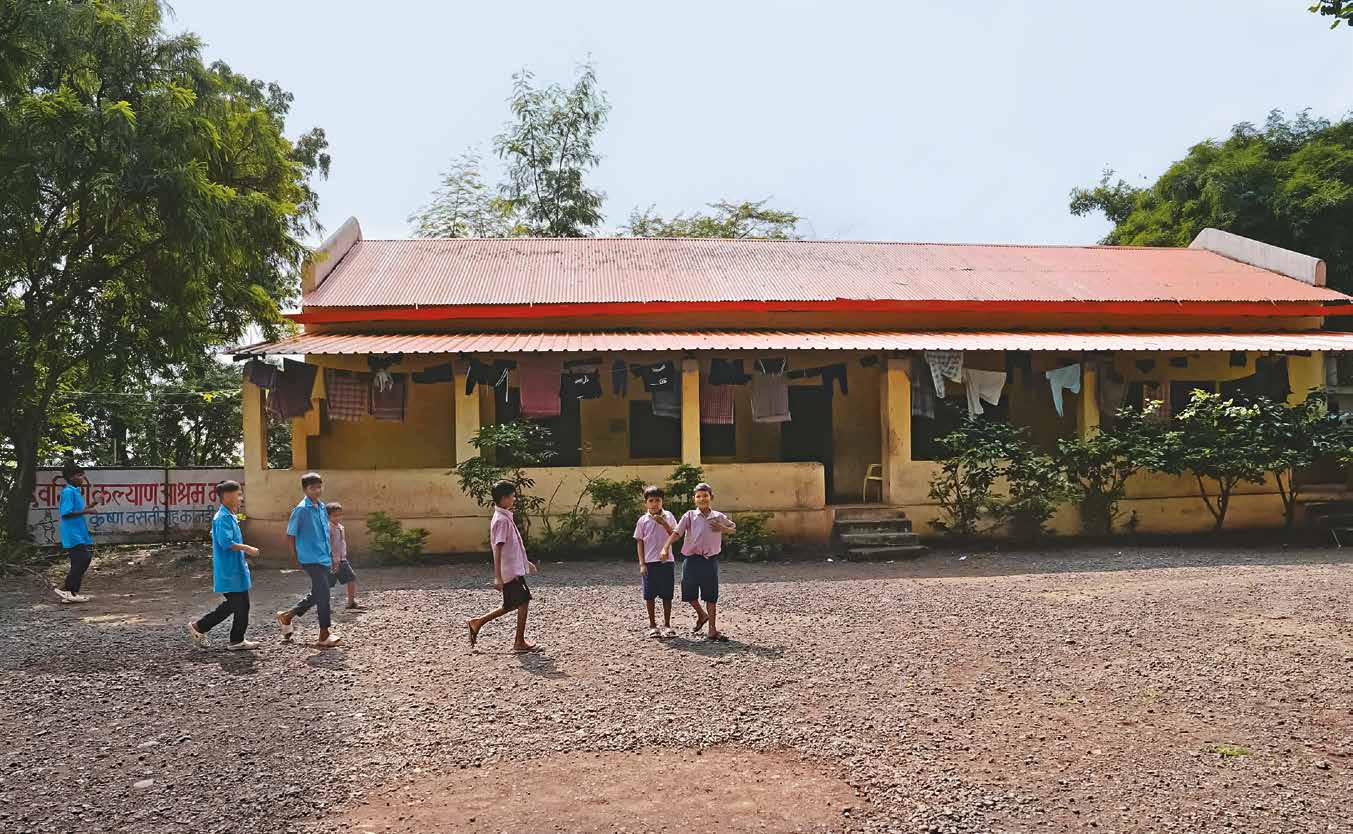
GORAKH Shinde, in his pink school shirt, sat under a tree on the premises of the Vanvasi Kalyan Ashram (VKA) in Kanadi-Chikhali. In Class V, he had just returned to his ashram hostel to play for a short while. His Zilla Parishad school is located right next door. Shinde, a Bhil Adivasi from Piprani village in Shahada taluka of Maharashtra's Nandurbar district, mentioned how he was introduced to the VKA at Kanadi-Chikhali.
"My parents are daily-wage labourers. We are five siblings. In 2023, I was studying in another school near our home along with my elder brother, but then we dropped out due to poverty. Later, when my father heard about the Vanvasi Kalyan Ashram here at Kanadi, I was brought here," he said.
His eyes were empty and distant and his patched uniform suggested financial struggles at home. He was eight when he entered the VKA. Now he is ten. Like him, around 29 other tribal children live in the VKA, attending nearby public schools. The VKA serves as a hostel for them, providing food and shelter free of cost, but with a strict schedule and discipline—the organisation's pan-India signature.
History of the VKA and Religious Conflicts
Founded in 1952 at Jashpur in Madhya Pradesh by senior RSS activist Balasaheb Deshpande, the VKA has grown over 74 years into a nationwide network working among tribal communities. It cuts across students, professionals and retired persons involved in the VKA's projects in education, health, agriculture, sports and shraddha jagaran (religious awakening). In Maharashtra, the Ashram began its work in 1979. It now runs 18 hostels for tribal students, three schools, three
यह कहानी Outlook के October 21, 2025 संस्करण से ली गई है।
हजारों चुनिंदा प्रीमियम कहानियों और 10,000 से अधिक पत्रिकाओं और समाचार पत्रों तक पहुंचने के लिए मैगज़्टर गोल्ड की सदस्यता लें।
क्या आप पहले से ही ग्राहक हैं? साइन इन करें
Outlook से और कहानियाँ

Outlook
From Margins to Mainstream The Inclusive Growth Story
Haryana leads the way in welfare reforms with schemes imaginatively redesigned to support the vulnerable — women, students, workers, and the marginalised
4 mins
December 01, 2025
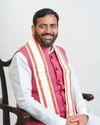
Outlook
One year of Saini Govt. marked by holistic and inclusive governance, social welfare
75 percent of promises kept and worked upon in one-fifth of tenure
4 mins
December 01, 2025
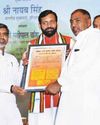
Outlook
Nurturing Urban Dreams on Rural Foundation Haryana's Housing Push Gains Pace
Haryana has redefined housing development with equity at its core. Through 'Housing for All', the state hasn't just built structures, it has rebuilt lives. From makeshift shelters to permanent homes marks a powerful journey on the road to social uplift and inclusive growth
3 mins
December 01, 2025
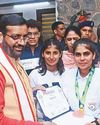
Outlook
Haryana, The Medal Factory, Powering India's Olympic Dreams
Haryana has risen as the undisputed powerhouse of Indian sports, blending grassroots talent, world-class infrastructure, and visionary policies
2 mins
December 01, 2025

Outlook
No Woman's Land
The Left parties, which champion women's representation and empowerment, fielded only one woman among their 33 candidates in the Bihar election
6 mins
December 01, 2025
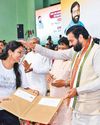
Outlook
Dignity With Jobs Youth Take the Centre Stage
Over four lakh job-seekers connected, thousands trained, and a generation empowered -- technology, transparency, and training redefine Haryana's employment landscape
2 mins
December 01, 2025
Outlook
Haryana Means Business; Here, Policy Meets Progress
Haryana is redefining industrial growth with investor-centric policies, cutting-edge digital governance, and infrastructure – making it a top destination for innovation, ease of business, and investment
3 mins
December 01, 2025

Outlook
Guarding Those Who Guard Us Haryana's Bold Vision for Soldier Welfare
With enhanced financial aid, medical grants, and priority for Agniveers in state jobs, Haryana is championing long-term opportunity and security for soldiers, ex-servicemen, and patriotic youth across the state
3 mins
December 01, 2025

Outlook
Lighting the Way with Clean Energy and People-Focussed Reforms
Haryana has transformed its power sector through a combination of rapid electrification, clean energy initiatives, and people-focussed reforms
3 mins
December 01, 2025
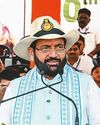
Outlook
Policing With A Human Touch Haryana's Tech-Led Transformation
From AI-enabled emergency response systems to pioneering forensic setup, from women's safety initiatives to cybercrime crackdowns, Haryana is setting new standards in technology-driven governance and public safety
3 mins
December 01, 2025
Listen
Translate
Change font size

